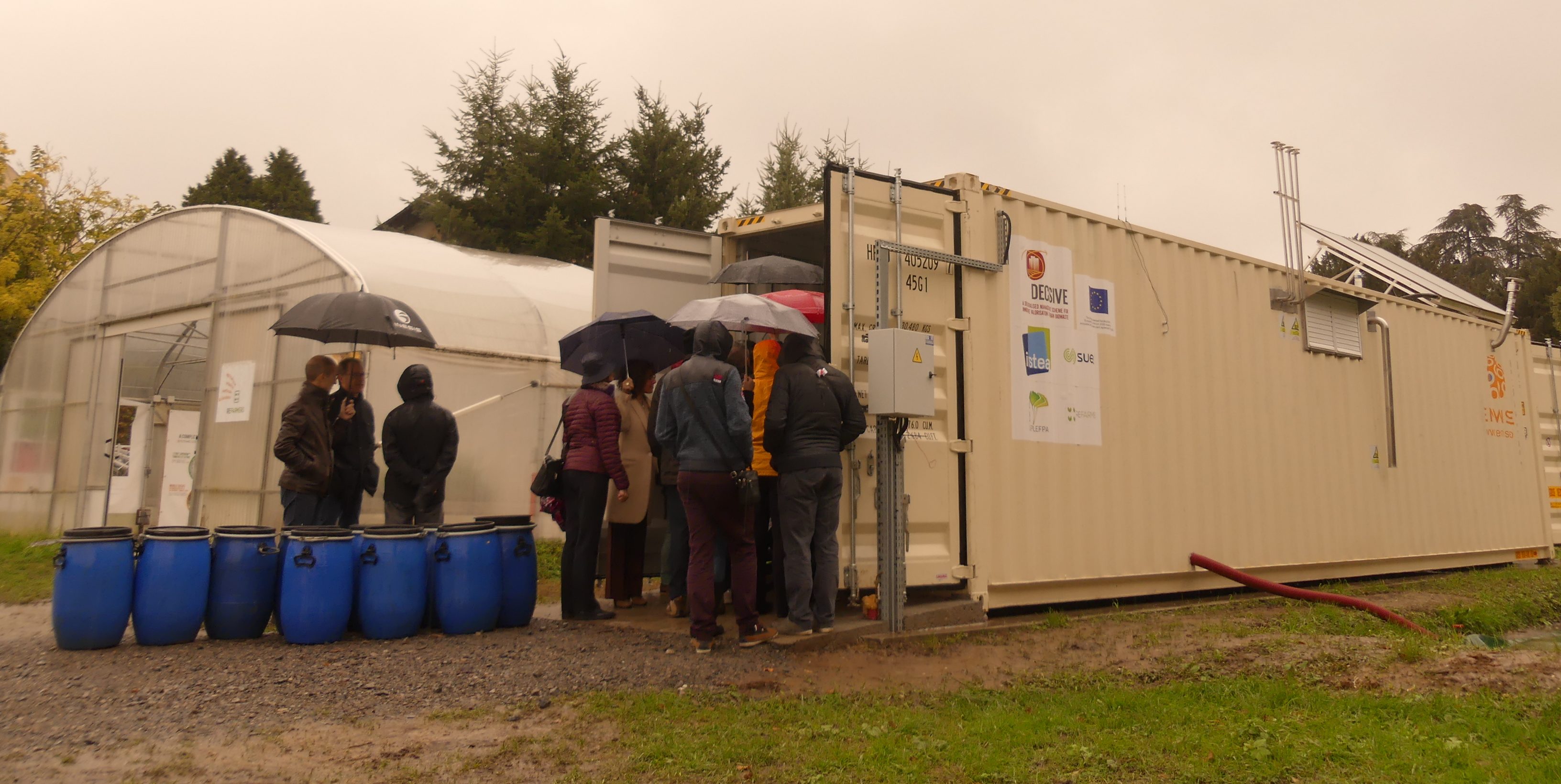After having featured the underlying objective and principles of the DECISIVE project and its supporting tools during the first two webinars, the demonstration sites are now taking the spotlight for the last two remaining ones.
Launched in November 2019, the demonstration site in Lyon attracted a lot of attention both locally and internationally. As the pandemic prevented the project partners and the site operator from further showcasing the DECISIVE solution for decentralised biowaste management, this webinar served well its purpose as it covered all aspects of the demonstration site – from its conception to its current state-of-art and presented them to a wide audience.
While the audience was composed of representatives of cities and regions such as Zagreb and Paris, but also companies active in the field of biowaste management and biogas production, speakers-wise the webinar gathered all the important contributors who participated in conceptualising and setting up the site and its subsequent exploitation. Anne Tremier of INRAE shortly elaborated the reasons for choosing Lyon and the very location for the project’s demonstration site. On behalf of the host of the installation, Alain Grenet of the local public farming school went through the entire process of permiting, obtaining necessary approvals, listing relevant authorities that had to be contacted followed by the organisation of the installation’s shipment from China and its installation on site upon arrival. He also reflected on its performance over the last year and a half, including the difficult times caused by the pandemic and the modifications they had to do in order to ensure a regular intake of feedstock.
When it comes to the technical concept and challenges, Paul-Edouard Koeltz and Stéphane Vernède of ENWISE, the installation’s constructors and Claudio Fontana of ITS Energy as the Stirling engine provider went deeper in details on the technical set up of the installation, the production processes and its adjustment to the project’s requirements.
A great added value to the webinar was brought by Camille Revolle, the head waitress at the hotel and restaurant Cour des Loges situated in Lyon’s old town. This restaurant has a very important place in the demonstration site’s overall functioning and being an example of what decentralised and circular biowaste management should look like. Not only the restaurant provides biowaste for the anaerobic digestion processes but they also supply themselves from the exact same farm where the demonstration site is located. The vegetables and other plants produced on site using the digestate and other products from the AD process end up on the restaurant’s plates. Ms Revolle confirmed that being a part of this processes gives them substantial visibility and pride which they are already transforming into several certificates and similar labels which will make them an exemplary restaurant that cares about the environment.
In order to wrap up the story of the demonstration site, Elisavet Angouria-Tsorochidou of the Aarhus University shared the results of the lify cycle assessment that was conducted and which highlights the environmental benefits of the installation. According to the results, the highest positive impact is obtained due to the production of bio-insecticides as a by-product from the AD process, while the fact that the biowaste as feedstock arrives from within a circle of 2-3 kilometres only helps keeping the environmental impact low.
The entire webinar, as well as the accompanying presentations can be found here.
The last webinar, again on a demonstration site but in Dolina, Italy will take place this summer. After the summer break, the project will also announce its Final Conference, which will take place early-October.

